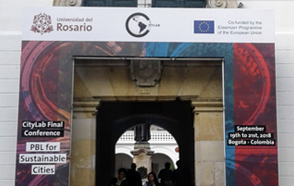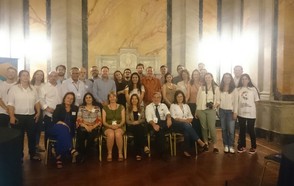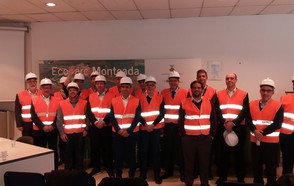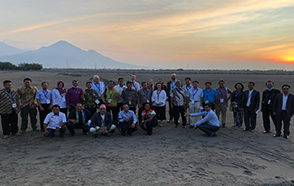
Photos Credits: @Geoff Mcfetridge
The final Conference of the CityLab project took place from 18 to 20 September in the city of Bogotá. The Project was coordinated by the University of Antwerp, together with the COLUMBUS network of Universities and United Cities and Local Governments (UCLG). 15 Latin American universities, 4 European universities and UCLG’s Urban Strategic Planning Committee also took part in the event.
UCLG’s Learning Strategy acknowledges the importance of increasing the capacity of local governments to answer to the challenges of sustainable development, which requires a higher education system that tackles the complexities of urban management through interdisciplinary education.
This is why UCLG partnered with the COLUMBUS Network in 2015, in the framework of the CITYLAB Project that lasted until 2018, to contribute to the systematization of methodologies and knowledge on urban management, including the integration of the SDGs in the policies of cities and regions.
Results of cooperation

In an academic article about the relationship between cities and universities, titled “It takes two to tango”, developed from a study designed by the COLUMBUS network and UCLG’s Learning área (UCLG Learning), a first analysis is shown on the concrete cooperation between Academia and 21 different municipalities. It showcases how the relationship between universities and cities in Latin America has flourished, and has developed due to timely initiatives from local and regional leaders. The close collaboration and the focus on a concrete territory is particularly important to connect and position intermediary cities. This relationship facilitates the sharing of experiences and values that can continue to further the impact on the ground through a continuous learning process on implementation and strengthening international relations.
Curricular innovation through Problem Based Learning methodologies in 15 Latin American universities
The Project helped universities to promote and pilot the Problem Based Learning methodologies. Thanks to the development of academic projects based on real urban contexts, and with more interdisciplinary academic support, more and more networks are inspired to place their focus on the work being done by local practitioners, and how to support them to implement the SDGs in each city.
A university contest rewards students for their work on the SDGs
Universities showed interest in supporting the reflection of urban management in their cities in order to carry out the implementation of similar methodologies in areas such as architecture, urbanism economics, history or social studies. A total of 20 projects were selected and rewarded by the jury in the final gala. The final winners were 4 students from the Venezuela Metropolitan University.
In the last day of the conference, UCLG coordinated a table in which cities showcased concrete experiences of common projects executed in Partnership between univiersities and Latin American cities. Ana Claudia Rossbach (Cities Alliance Latin America), Carina Arvizú (Mexican Provisional National Government), Yamil Asch (Government of Buenos Aires/Mercociudades) and Yovany Jimenez (Bogotá) were present at the session. The speakers, linked to UCLG’ Urban Strategic Planning Committee, agreed on the importance of the Exchange of ideas and experiences, in particular between strategic planning departments and academic actors in order to localize the global agenda and, at the same time, they reminded the challenge of providing continuity to the commitments that had been undertaken.
- Visit the dedicated website.













